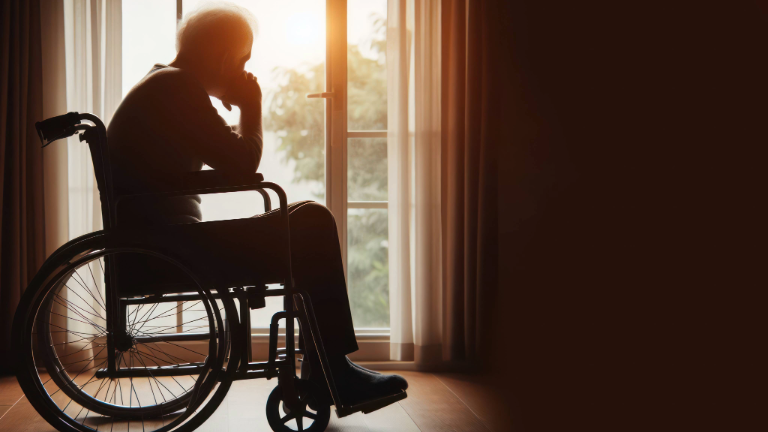The following is a typical situation a family comes to us seeking advice:
Husband and wife have been married for 51 years. Recently, the husband, who was diagnosed with Alzheimer’s Disease five years ago, fell at home, breaking a hip. He was admitted to the hospital as an in-patient and then transferred to a local nursing home for sub-acute rehab. The nursing home has advised the family that the last covered day under Medicare will be in the next few days, although 60 days remain within the Medicare 100-day covered period. The family believes the husband is in need of more therapy with the goal of returning to the marital home.
The wife would like her husband to remain in the nursing home because she believes she cannot care for him at home. However, the nursing home is advising the family that it has no “long-term care” beds available and, therefore, he would need to be discharged home or transferred to another nursing home that has an available “long-term care” bed.
With regard to the last covered day under Medicare, it is important to understand the Medicare guidelines. Medicare will cover up to 100 days of “skilled nursing care” in a nursing home for rehabilitation. The first 20 days are covered in full, while there is a $209.50 co-pay for the next 80 days. However, most patients do not receive the maximum of 100 days. Typically, the nursing home makes a determination that the resident is no longer in need of skilled care.
Unfortunately, many nursing homes and health care providers utilize the incorrect standard to determine whether a patient is in need of skilled care. Historically, healthcare providers have incorrectly utilized the “improvement standard’ which states that if the patient is no longer improving, he or she is no longer in need of skilled care.
Instead, pursuant to the federal court case of Jimmo vs. Sebelius, the correct standard to be used is the “maintenance standard.” The maintenance standard states that a patient is in need of skilled care to maintain his or her current condition. In other words, there is no need for the patient to improve with continued therapy. It is important to understand this standard to attempt to receive as close to the maximum 100 days as possible.
In many cases, the nursing home, as in the above situation, informs the family that their loved one, once the Medicare-covered stay ends, can no longer remain at the nursing home because there are no “long-term care beds” available. However, there is no such legal term as “long-term care beds.” Pursuant to the federal Nursing Home Reform Act, a nursing home resident cannot be involuntarily discharged if the sole reason for discharge is a change in payment status.
This means if the nursing home resident is no longer covered by Medicare, the resident can remain in the nursing home as long as the bill is covered by some source – including Medicaid, private pay, or long-term care insurance. We have prevented many improper nursing home discharges for our clients over the years by providing needed advocacy.
It is important to understand nursing home laws and regulations when assisting a loved one in the above situation. The goal of our elder care law firm is to help advocate for our clients using nursing home laws and regulations to achieve the best possible result.


